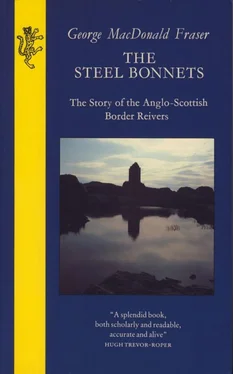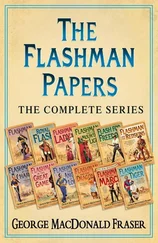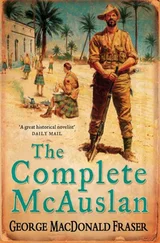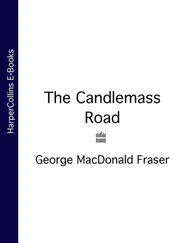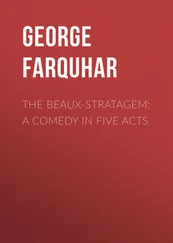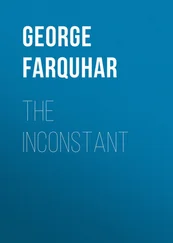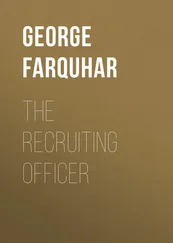George Fraser - The Steel Bonnets
Здесь есть возможность читать онлайн «George Fraser - The Steel Bonnets» — ознакомительный отрывок электронной книги совершенно бесплатно, а после прочтения отрывка купить полную версию. В некоторых случаях можно слушать аудио, скачать через торрент в формате fb2 и присутствует краткое содержание. Жанр: unrecognised, на английском языке. Описание произведения, (предисловие) а так же отзывы посетителей доступны на портале библиотеки ЛибКат.
- Название:The Steel Bonnets
- Автор:
- Жанр:
- Год:неизвестен
- ISBN:нет данных
- Рейтинг книги:4 / 5. Голосов: 1
-
Избранное:Добавить в избранное
- Отзывы:
-
Ваша оценка:
- 80
- 1
- 2
- 3
- 4
- 5
The Steel Bonnets: краткое содержание, описание и аннотация
Предлагаем к чтению аннотацию, описание, краткое содержание или предисловие (зависит от того, что написал сам автор книги «The Steel Bonnets»). Если вы не нашли необходимую информацию о книге — напишите в комментариях, мы постараемся отыскать её.
The Steel Bonnets — читать онлайн ознакомительный отрывок
Ниже представлен текст книги, разбитый по страницам. Система сохранения места последней прочитанной страницы, позволяет с удобством читать онлайн бесплатно книгу «The Steel Bonnets», без необходимости каждый раз заново искать на чём Вы остановились. Поставьте закладку, и сможете в любой момент перейти на страницу, на которой закончили чтение.
Интервал:
Закладка:
But Edward, like many native Scottish kings, was to discover that it was easier to get control of Scotland than to keep it. His triumphal progress had been designed to show Scotland who was master; in the place of the abject Balliol he left only a governor, John de Warrenne, but with English garrisons in the castles, English justice, and English taxes. It was not enough for the task, as Edward should have realised. To subdue Scotland, he would have had to treat it as he had treated Berwick. Instead, he made his tour, left behind an elderly and incompetent governor, and hoped for peace. What he got was William Wallace.
The story of the Scottish revolt has been told so many times that one need not go into it again. Its political effects were enormous, not least along the Border. While first Wallace and later Bruce carried the torch, while Edward, probably the ablest soldier-king England ever had, came again and died, old and done, in the Cumberland marshes, while the battles were fought and the English gradually borne southward again, the Borders learned what it was to be a no man’s land. After Wallace’s victory at Stirling, where the Scots gave a foretaste of things to come by flaying the corpse of Edward’s detested treasurer, Cressingham, Northern England had been invaded; Northumberland was subjected to systematic plunder and devastation; to the west, Carlisle again held out, but Cumberland was laid waste as far as Cockermouth and the Lakes. The county struck back, and Clifford’s Cumbrians harried Annandale, slaughtering and burning. So it went on, to and fro, and while Scotland and England settled the great issue, the Borderland was being created in a sense that neither set of national leaders would have understood. Edward and Wallace left a terrible legacy, and to the people of the Marches it hardly mattered who had started it all. One thing the war ensured; whatever treaties might be made and truces agreed at the top, however often a state of official peace existed, there was never again to be quiet along the frontier while England and Scotland remained politically separate countries.
Bannockburn was the high point in Scotland’s fight for independence. Bruce, whatever reservations may be held about his character, was that rare combination of an inspiring leader, a good general, and a personally expert fighting man. Under his supervision, the finest army England had ever put into the field was destroyed in two days; the English chivalry broke its heart against the steel rings of the Scottish infantry, and by night on the second day England’s king was in flight, the best of his country dead or captured, and his father’s dream of a unified Britain had evaporated. Indeed, it had been easier to take a kingdom from the son than a yard of ground from his father.
It was a smashing victory, and the general dismay in England was especially strong in the north, with good cause. Scottish forces under Edward Bruce and James Douglas poured into the English East March; Northumberland was pillaged again, and Durham only escaped similar treatment by paying a mighty ransom. Yorkshire and Westmorland were less fortunate, being plundered of cattle and prisoners; Appleby was sacked and burned, along with other towns; Redesdale and Tynedale, favourite targets of later raids, were ravaged, and Cumberland was forced to disgorge tribute to the Scottish king.
Bruce had been humane to his beaten enemies at Bannockburn; it is interesting to note that the surviving invaders of Scotland probably received better treatment than the civilian inhabitants of the northern shires who had taken no part in the campaign. Not that this was inconsistent with the chivalric code; indeed, it seems to have been part of it.
A significant feature of this Scottish invasion was that it saw the levying of vast indemnities from the English Borderers; Bruce set the example, on a large scale, for those later generations of Border gangsters who made blackmail and protection racketeering systematic.
Without going into further detail of the great raids and counterraids of this period, it can be judged in what condition the War of Independence left the Borderland. It had been most brutally used; in addition to the ravages of the contending armies, there had been an unusually heavy rainfall in the year after Bannockburn; seed rotted, crops could not be got in, sheep and cattle were dying. When Edward II again marched into Scotland in 1315 “bread could scarcely be found for the sustenance of his family”, 2 and the expedition was abandoned. It was as bad on one side as on the other—so bad, that another Border phenomenon emerged.
“Many of the English who dwelt nigh the Marches, wearied out with their sufferings, and despairing of protection from their own king, abandoned their country, and confederating with the Scots, became companions and guides of their incursions into England, and sharers with them of the spoils of their unhappy countrymen”. 3
The guide-lines were being drawn with a vengeance; in the struggle for survival the Border was learning new rules. Before the war, raiding and foraying across the frontier has been less than a local industry; invasions and attacks there had certainly been, in time of war, but for more than a century before Edward I began to practise his Scottish policy, the Border had been at peace with itself. The years of Bruce and Wallace and the two Edwards changed all that; a new order was instituted, not by any positive attempt of policy, but by a gradual and inevitable development. People who have suffered every hardship and atrocity, and who have every reason to fear that they will suffer them again, may submit tamely, or they may fight for survival. The English and Scots of the frontier were not tame folk.
When the War of Independence began the Borders had been moving forward towards civilisation; when they ended the people of the Marches had returned to something like the cave ages. Centuries of progress had been destroyed in a generation, and the natives, to quote Scott, had been carried back in every art except those which concerned the destruction of each other.
Partly this arose from the type of war prescribed, says Fordun, by Bruce for the defeat of the invading English.
On foot should be all Scottish war
By hill and moss themselves to wear;
Let wood for walls be bow and spear.
In strait places gar keep all store,
And burn the plain land them before;
Then shall they pass away in haste,
When that they find naething but waste.
With wiles and wakening on the night,
And meikle noises made on height.
Che Guevara would have approved every word of it. The Scots, unable except on a few notable occasions to match the might of England in pitched battle, fought a campaign to which their people and country were particularly suited. They scorched the earth, destroyed their own homes and fields, took to the hills and the wilderness with their beasts and all they could move, and carried on the struggle by on-fall, ambush, cutting supply lines, and constant harrying. It was a wasting, cruel war, and they carried it into England whenever they could, so that both sides of the Border suffered alike.
What resulted was not only guerrilla warfare, but guerrilla living. In times of war the ordinary Borderers, both English and Scottish, became almost nomadic; they learned to live on the move, to cut crop subsistence to a minimum and rely on the meat they could drive in front of them. They could build a house in a few hours and have no qualms about abandoning it; they could travel great distances at speed and rely on their skill and cunning to restock supplies by raiding. All these things they were forced to do while English and Scottish armies marched and burned and plundered what was left of their countryside. This was how they were to live whenever war broke out for the next two and a half centuries.
Читать дальшеИнтервал:
Закладка:
Похожие книги на «The Steel Bonnets»
Представляем Вашему вниманию похожие книги на «The Steel Bonnets» списком для выбора. Мы отобрали схожую по названию и смыслу литературу в надежде предоставить читателям больше вариантов отыскать новые, интересные, ещё непрочитанные произведения.
Обсуждение, отзывы о книге «The Steel Bonnets» и просто собственные мнения читателей. Оставьте ваши комментарии, напишите, что Вы думаете о произведении, его смысле или главных героях. Укажите что конкретно понравилось, а что нет, и почему Вы так считаете.
